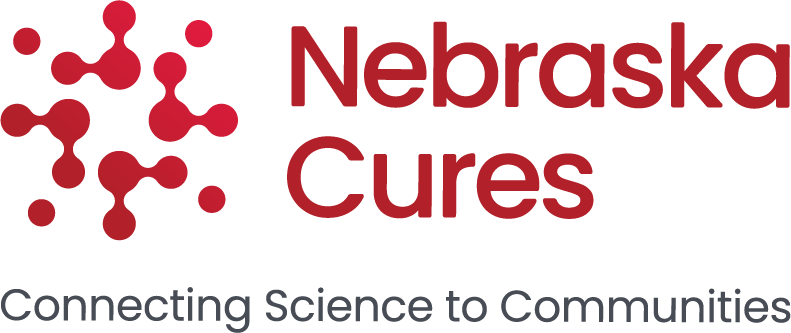The mission of the Nebraska Coalition for Lifesaving Cures (Nebraska Cures) states that we promote, support and advocate for research to advance our quality of life and our economy. Within that mission, one of our guiding statements is that as “… a leading advocate for health science research and education that advances quality of life, Nebraska Cures will educate the public on research advancements that could lead to lifesaving cures, stop the spread of disease, support the economy and lead to a healthier Nebraska.” This broadened focus has led us to consider areas beyond our traditional “stem cells” focus that are also important to consider regarding the health of Nebraskans and the effect on our economy. One complex area influencing both health and economy is the impact of climate change and extreme weather events.
This has also become an interest of the Nebraska Legislature. Indeed, this year LB 483 proposes that the University of Nebraska develop an action plan to address these complex climate related issues. Included in that bill is the following citation: “… The 2015 Nebraska Rural Poll found that sixty-one percent of rural Nebraskans agree or strongly agree that the state should develop a plan to address the impacts of extreme weather events or climate change … Appropriate planning is needed to develop strategies to mitigate and adapt to the impacts of extreme weather events or climate change on the health and well-being of Nebraskans…”
In this regard, the Water, Climate and Health Program at UNMC, a joint venture between UNMC and UNL, is well positioned to participate in this plan development. Their mission is “… to form collaborations to advance our understanding of public health challenges related to water and climate, and to create solutions to these challenges.” (1)
The public health implications of climate change and extreme weather are well-known, and the effects significantly impact health systems as well as rural inhabitants (2). Rural communities are especially hurt as they “… tend to be older, have significantly lower incomes, have less education, suffer more health problems, and are more socially isolated than urban counterparts” (3). These circumstances make rural Nebraska communities more vulnerable to effects such as “sustained heat events (direct effect) and stressors from rising food prices, medicine costs, and higher utility bills (indirect effects)” (3).
Additionally, the economic repercussions of climate change on agriculture, where one in four jobs in the state are related, and human health will only increase without proper monitoring of climate change and its effects (4). A 2017 study analyzed the economic impacts of climate change by the end of this century. Results included a decline in agricultural production and an increase in human mortality (5). Others recognizing this reality prompted the United Kingdom Government Economic Service to state that “the costs of procrastinating may far exceed the costs of timely action, in both economic terms and health terms” (6).
The practice of delivering health care is significantly impacted by climate change. For instance, when in a heat wave, primary care offices could be screening for access to cool environments, high-risk occupations, and if patient medications are stored at appropriate temperatures to be effective. Extreme weather events can also impact power supplies and the ability of hospitals and other care facilities to keep up with demand (7). Many medical organizations have recognized the importance of facing this issue with some urgency (8).
Nebraska Cures affirms the importance of science-based decisions and emphasizes the need for facts to reach a comprehensive response to climate change. Emphasis on research regarding climate change and its measurable impacts is vital for policy responses to prevent larger public health and economic crisis in Nebraska. We advocate for increased public health research to examine the challenges and other hidden influences of climate change and extreme weather events-related health issues in Nebraska.
- Water, Climate and Health Program | Public Health | University of Nebraska Medical Center (unmc.edu)
- Ebi, Kristie L et al. “Extreme Weather and Climate Change: Population Health and Health System Implications.” Annual Reviews of Public Health, vol 42, 2021, pp 26.1-26.23.
- Kearney, Gregory D., et al. “Climate Change and Public Health through the Lens of Rural, Eastern North Carolina.” North Carolina Medical Journal, vol. 79, no. 5, 2018, pp. 270–277., doi: https://doi.org/10.18043/ncm.79.5.270.
- Nebraska Department of Agriculture, USDA NASS, Nebraska Field Office. “Nebraska Agriculture Fact Card.” Feb. 2020. https://nda.nebraska.gov/facts.pdf
- Hsiang, Solomon et al., “Estimating economic damage from climate change in the United States.” Science, vol. 356, 2017, pp. 1362-1369., https://science.sciencemag.org/content/356/6345/1362#:~:text=The%20combined%20value%20of%20market,1%C2%B0C%20on%20average.
- Stern N. “The Economics of Climate Change: The Stern Review”, London, England: HM Treasury and Cambridge University Press; 2006. http://www.hm-treasury.gov.uk/independent_reviews/stern_review_economics_climate_change/stern_review_report.cfm.
- Salas, Renee. “The Climate Crisis and Clinical Practice.” The New England Journal of Medicine. 382, 589-591. 2020 https://www.nejm.org/doi/full/10.1056/NEJMp2000331.
- Solomon, Caren G. “Climate Change – A Health Emergency”, New England Journal of Medicine vol 380, 2019, pp 209-211.
